Elearning market in Brazil – update datas
Are you still wondering if it is worth investing in elearning market in Brazil? Be ready to be convinced.

Informations on the Elearning Market in Brazil
In a previous analysis of the Elearning market in Brazil and worldwide, data already appointed a growth scenario.
Now, a more recent survey by the Censo EAD.BR brings updated information.
See below a summary of key information presented in the survey.
Student Profile
The students profile is a reliable indicator of the inclusiveness of the elearning market in Brazil.
A large portion of those enrolled are “workers who study” and not “working students”.
In addition, another defining characteristic of distance education is the highest proportion of women among students.
From 2016 to 2017 a new profile of distance learning students began to appear more: high school graduates.
This students began to consider distance learning courses as a natural choice to continue to university education.
This breaks up historical notion that Distance Education attend only excluded from natural schooling cycle.
Age group
The highest concentration of students in distance learning courses is between 26 and 30 years and between 31 and 40 years.
It was observed that 29% of fully distance regulated courses and 33% of blended courses have an average age of students between 26 and 30 years.
In other hand, 37% of fully distance regulated courses and 16% of blended courses have an average age between 31 and 40 years.
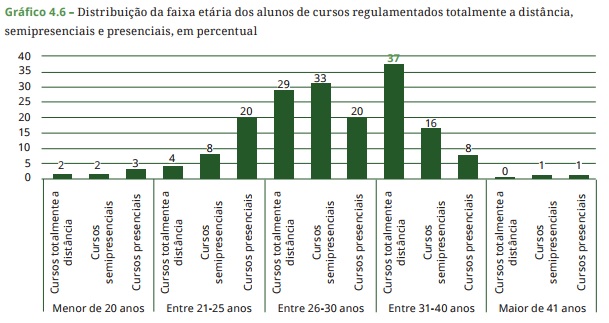
This high incidence of students after the typical graduation age is significantly higher in distance education that in classrooms.
Among the free courses, both corporate and noncorporate, the highest incidence of students is in the range between 31 and 40 years.
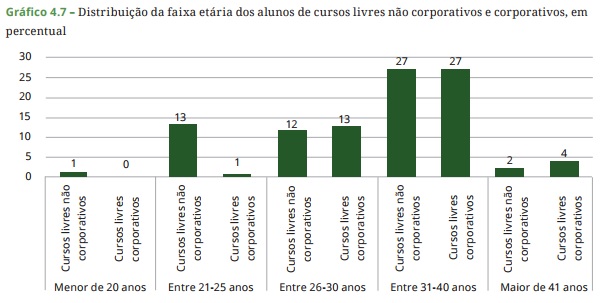
These numbers reinforce the potential of distance education for continuing education.
Courses Offer
The offer of distance learning courses, both corporate and noncorporate, says a lot about the practical vocation of online learning.
Were reported 1,233 offers of free courses in corporate operational training area.
Among noncorporate courses, the highest number is on the refresher courses.
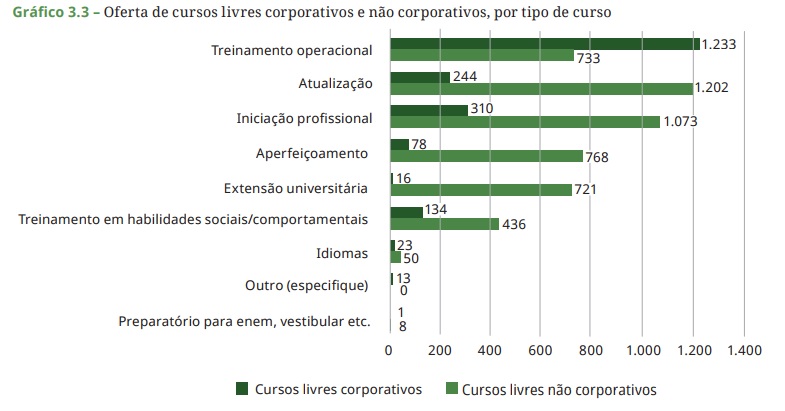
The survey notice that companies emphasize training to meet their specific needs.
However, refresher courses serve as a good option for those looking to expand their educational horizons, regardless of the demands of the companies.
The professional training also has a significant offer in the elearning market in Brazil.
In terms of areas of knowledge, the courses offer focuses on the humanities and social sciences.
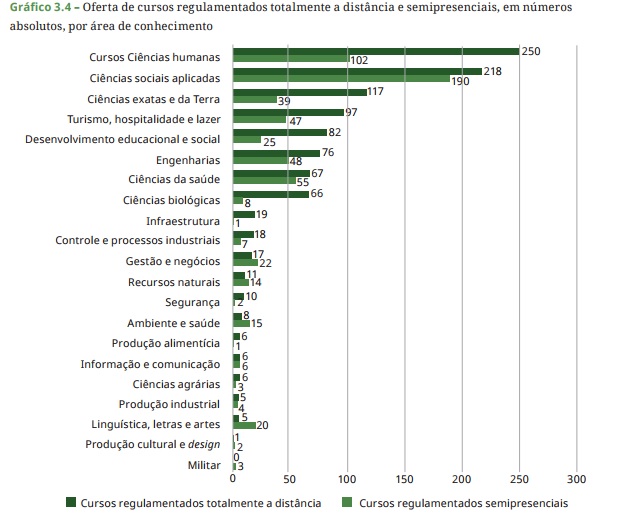
It was found that only the military has no fully distance courses, but does offer blended courses.
Enrollment
Analysis of enrollments in distance education courses separated by knowledge area, showed a higher concentration in the humanities and social and applied sciences, with 61,316 and 58,584 students, respectively.
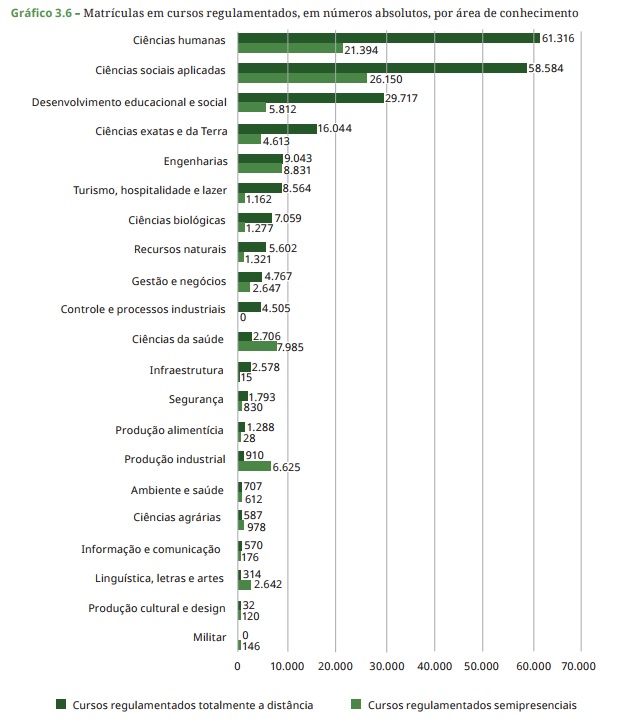
Regarding the free courses it can be seen that the highest concentration of students is on professional training classes.
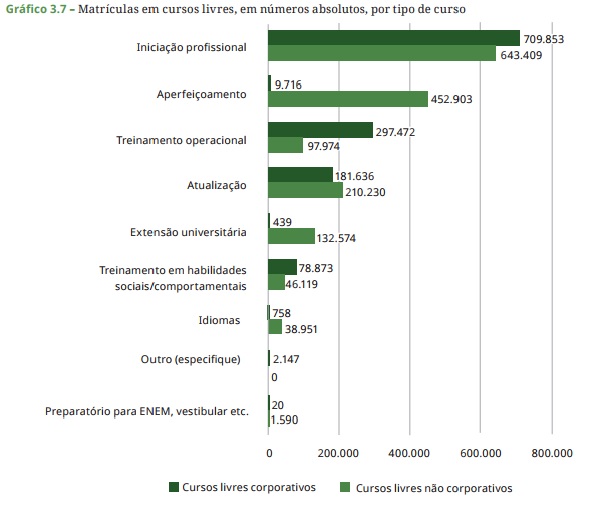
The category also includes very significant number in the noncorporate free courses.
This proves that online courses are being sought as way to acquire new skills and improve the curriculum for the labor market.
Content
The survey found that video classes and digital texts that are not characterized as books, are the most frequent type of content in the elearning market in Brazil.
The distance learning courses also excel in offering innovative features that are coming now to the education market, such as electronic games (18%), online simulations (10%) and adaptive resources (11%).
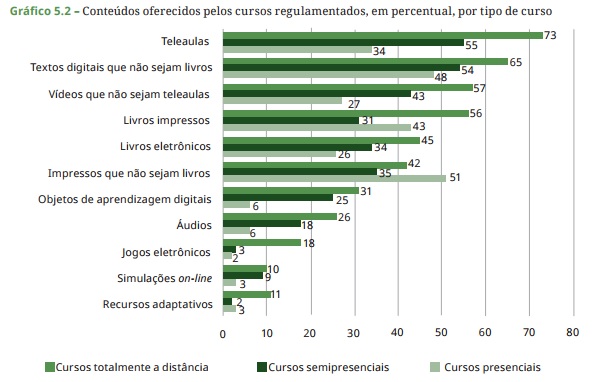
The leadership in innovation and variety of content goes to fully distance regulated courses.
Among the free courses, the greatest content diversity was observed in the noncorporate ones.
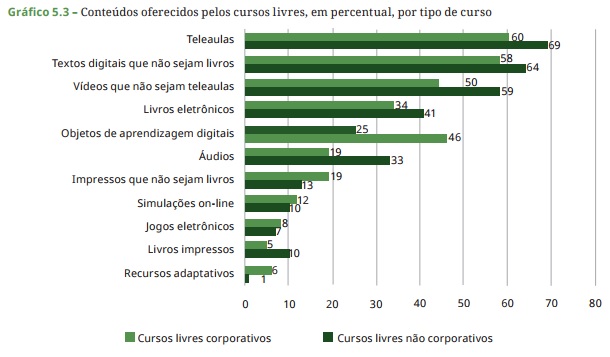
This probably because they compete for free membership of their students and have to further strive for the quality of content.
Content Distribution
The distance learning courses are distributed primarily through virtual learning environments such as Coursify.me.
It was observed that 91% of public agencies, 88% of municipal public institutions, 78% of private profit institutions and 76% of non-profit use this feature.
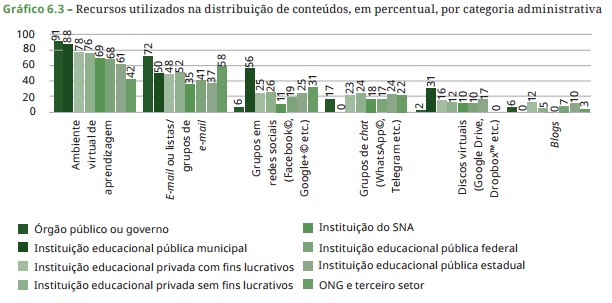
The other tools adopted for the distribution of content include email, social networks, chat groups and blogs.
Distance courses fully regulated and noncorporate free courses are the ones that use more virtual learning environments.
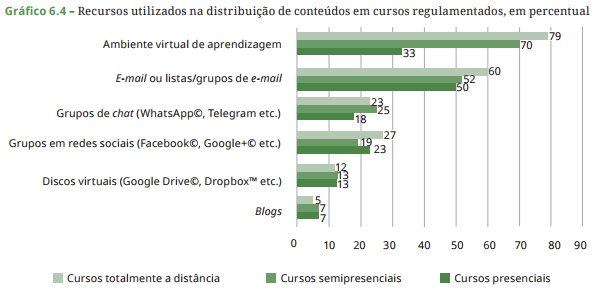
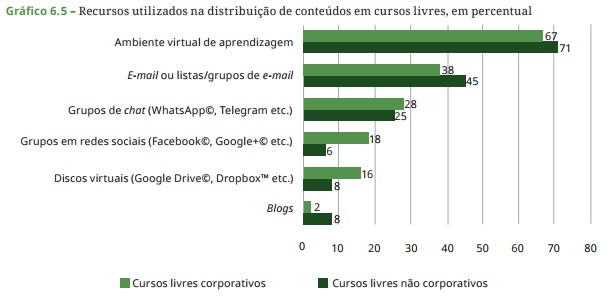
The survey conducted by the Censo EAD.BR is quite complete and provides important information to those interested in entering the elearning market in Brazil.
To access its full content, please visit the following link: Censo EAD.BR 2016/2017
Complete elearning platform, the Coursify.me is the right choice for those who want to offer the best distance education experience for their students.
Visit our site, test our platform and start to profit with one of the fastest growing markets.

